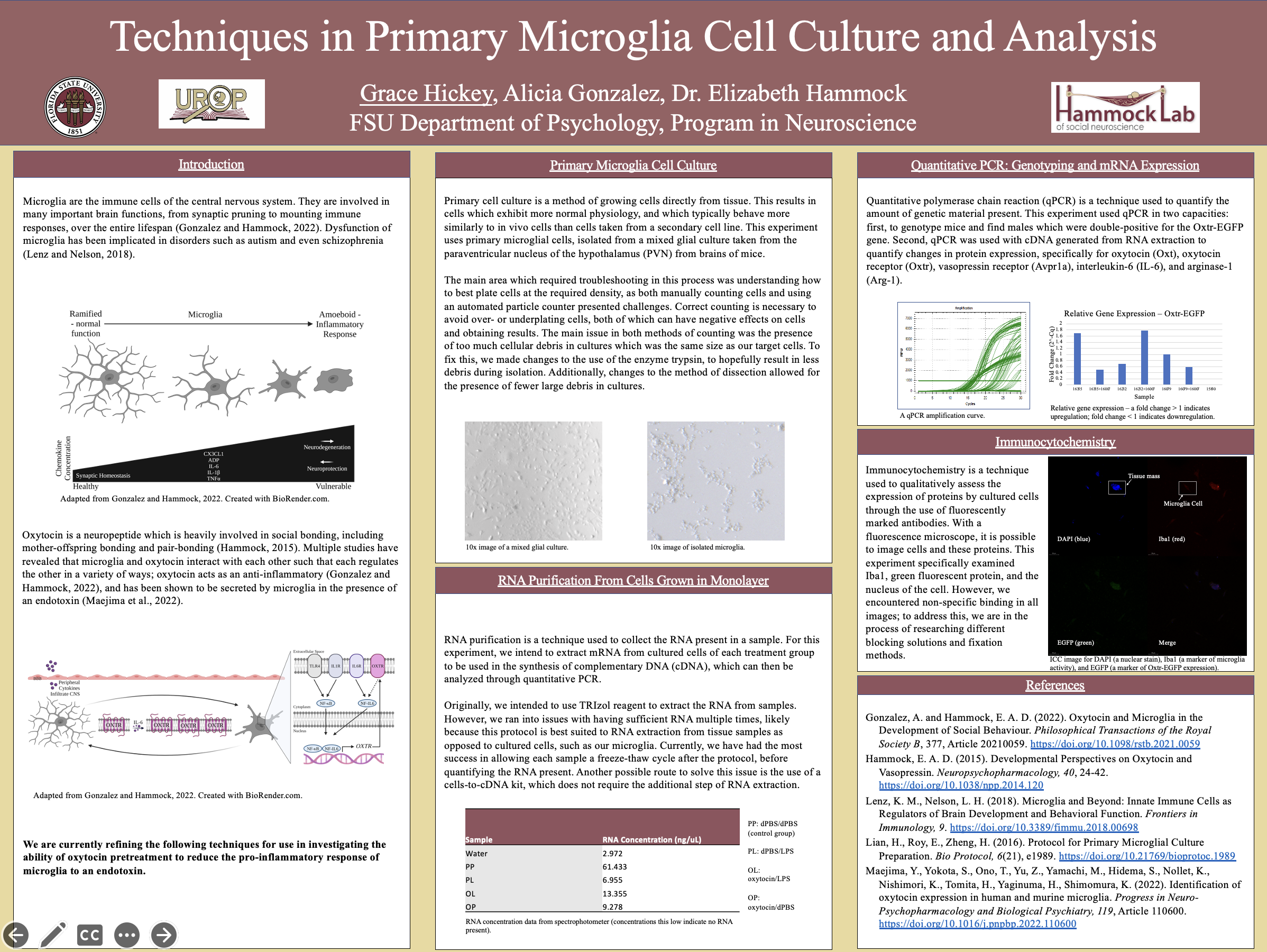Research Symposium
23rd annual Undergraduate Research Symposium, April 6, 2023
Grace Hickey Poster Session 2: 1:30 pm - 2:30 pm/ Poster #135
BIO
Hi! My name is Grace Hickey. I am a freshman from Destin, Florida, and I'm majoring in cell and molecular neuroscience. In the future, I hope to pursue a PhD in neuroscience and have a career in research. Some of my research interests include social neuroscience, computational neuroscience, and molecular biology.
Techniques in Primary Microglia Cell Culture and Analysis
Authors: Grace Hickey, Elizabeth HammockStudent Major: Cell and Molecular Neuroscience
Mentor: Elizabeth Hammock
Mentor's Department: Psychology Mentor's College: Arts and Sciences Co-Presenters:
Abstract
As the immune cells of the central nervous system, microglia are heavily involved in pro-inflammatory responses in the brain. Oxytocin, a neuropeptide which plays many roles in social behavior, has also been found to have anti-inflammatory effects. This experiment was conducted to investigate the ability of oxytocin pretreatment to reduce the pro-inflammatory response of microglia to a pathogen. To test this, primary microglia of OXTR-EGFP transgenic mice were cultured for one week, then pre-treated with Dulbecco’s Phosphate Buffered Saline (dPBS), as a control, or oxytocin for 2 hours. They were then treated with dPBS or lipopolysaccharide (LPS), an endotoxin for 20 hours. The expression of oxytocin, oxytocin receptor, and interleukin-6 was measured using quantitative PCR. Immunocytochemistry was used to qualitatively analyze the expression of OXTR and Iba-1, a microglia-specific marker. Preliminary results suggest that oxytocin pretreatment does not have any effect on the anti-inflammatory response of cultured microglial cells. There does not appear to be a change in oxytocin receptor or IL-6 expression between oxytocin pretreatment and non-pretreatment groups. However, we are in the process of increasing the sample size of this experiment as well as troubleshooting the methods involved. Because of results obtained in previous studies, we expect that our findings may change with more replication.
Keywords: neuroscience, microglia, oxytocin,


